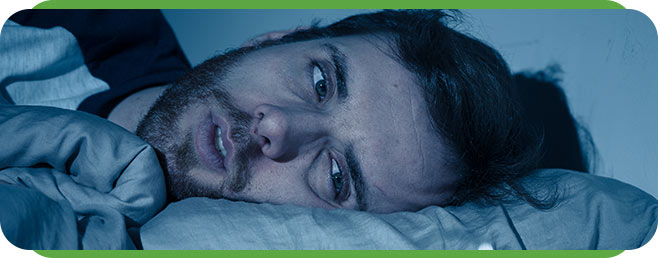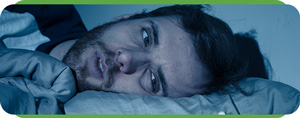Genetic Sleep Disorders Treatment Q&A
Genetic sleep disorders are conditions caused by irregularities in a person’s genes that impair their sleep habits. These disorders can cause a variety of problems, ranging from trouble falling asleep to disruptions in the sleep cycle. If you have persistent sleep disorders caused by genetic factors, it is essential to seek professional assistance at Koala® Center For Sleep & TMJ Disorders for a comprehensive assessment and customized treatment plan. For more information, contact us or book an appointment online. We have convenient locations across the U.S. in Bloomington IL, Peoria/Dunlap IL, El Paso TX, and Wausau WI.




Table of Contents:
What genetic disorder doesn’t let you sleep?
Is there a very high genetic predisposition to insomnia?
What are sleeper genetics?
Can genetic sleep disorders be treated?
Fatal familial insomnia is a rare genetic disorder that impacts sleep patterns. FFI is classified as a degenerative brain condition. It is inherited and has distinctive symptoms, such as the inability to sleep. Specifically, FFI is characterized by the gradual escalation of insomnia.
It’s common for patients with FFI to experience difficulty falling asleep, which can lead to a variety of other health issues. As the disorder progresses, other symptoms will appear, including weight loss and cognitive decline. FFI typically starts with mild symptoms that intensify over time, ultimately causing profound effects on a person’s mental and physical wellness.
Living with this condition is challenging, however, there are therapies to address the symptoms and allow patients to live better. The experts at Koala Center for Sleep & TMJ Disorders are here to support you throughout the diagnostic process and outline the best treatment options for you.
Yes, there is a risk of a genetic predisposition to insomnia. Insomnia impacts about 10 to 20 percent of adults, making it quite a common concern. Twin and family studies have highlighted that insomnia runs in families. These studies found that about a third of the risk of developing this sleep disorder is genetic.
That being said, it’s crucial to understand that both genetic predisposition and environmental factors play a notable role in the development of this sleep disorder. While genetic factors elevate your vulnerability to developing insomnia, external factors such as your sleep hygiene, stress levels, and other parts of your lifestyle also have a large influence on the onset and severity of insomnia.
If you have a family history of insomnia, it’s essential to be aware that this disorder may be affecting you now or in the future. It’s recommended to take proactive measures to promote good sleep hygiene and seek professional support if sleep disturbances occur.
Sleeper genetics is a term used to describe a unique genetic variation found on the DEC2 gene. This genetic mutation allows people to be naturally “short” sleepers, meaning they only need a short amount of sleep.
Despite sleeping for less time than is generally ideal, people with this genetic mutation can function normally without taking a toll on their mental or physical wellness. People with sleeper genetics only require roughly four to six hours of sleep a night. This is almost half the time required by an average person, who needs at least eight hours. People with sleeper genetics are not impacted by the adverse effects commonly linked with a lack of sleep, such as poor concentration, headaches, daytime sleepiness, and irritability.
While sleeper genetics would be a huge advantage if you wanted to enhance your productivity, it’s important to keep in mind that this genetic mutation is rare. Furthermore, as it was discovered relatively recently, the long-term effects of a DEC2 mutation are still being studied. Overall, if you have strange sleep patterns or can’t get eight hours of sleep consistently, it’s recommended to see a sleep professional to find out the root cause of the issue.
Yes, genetic sleep disorders can be treated or managed with the help of a sleep professional. Sleep conditions can be complex, so a multifaceted approach is needed to address symptoms and enhance wellness. For people living with hereditary sleep disorders, it’s especially important to seek professional guidance. To thoroughly evaluate your condition, the provider typically recommends genetic testing along with detailed sleep assessments.
There are a wide variety of treatment approaches available for those dealing with a genetic sleep disorder. For example, lifestyle modifications, such as optimizing sleep hygiene and establishing consistent sleep-wake patterns, can significantly enhance sleep quality. Additionally, behavioral therapies, including cognitive-behavioral therapy for insomnia (CBT-I), are also great tools for managing hereditary sleep conditions.
In some cases, medications are recommended to address the symptoms associated with genetic sleep disorders. A specialist can prescribe medication to target neurotransmitters and sleep-regulating pathways to reduce insomnia, excessive daytime sleepiness, and other symptoms. If you have a genetic sleep disorder, the professionals at Koala Center for Sleep & TMJ Disorders can help you address frustrating symptoms and enhance the quality of your sleep, so you can lead a healthier life

Additional Services You May Need
▸ KoalaKIDZzz®
▸ Sleep Apnea
▸ Snoring
▸ TMJ Disorder
▸ Fatigue
▸ Sleep Disorders
▸ Weight Loss
▸ CPAP Alternative
▸ Oral Appliances




